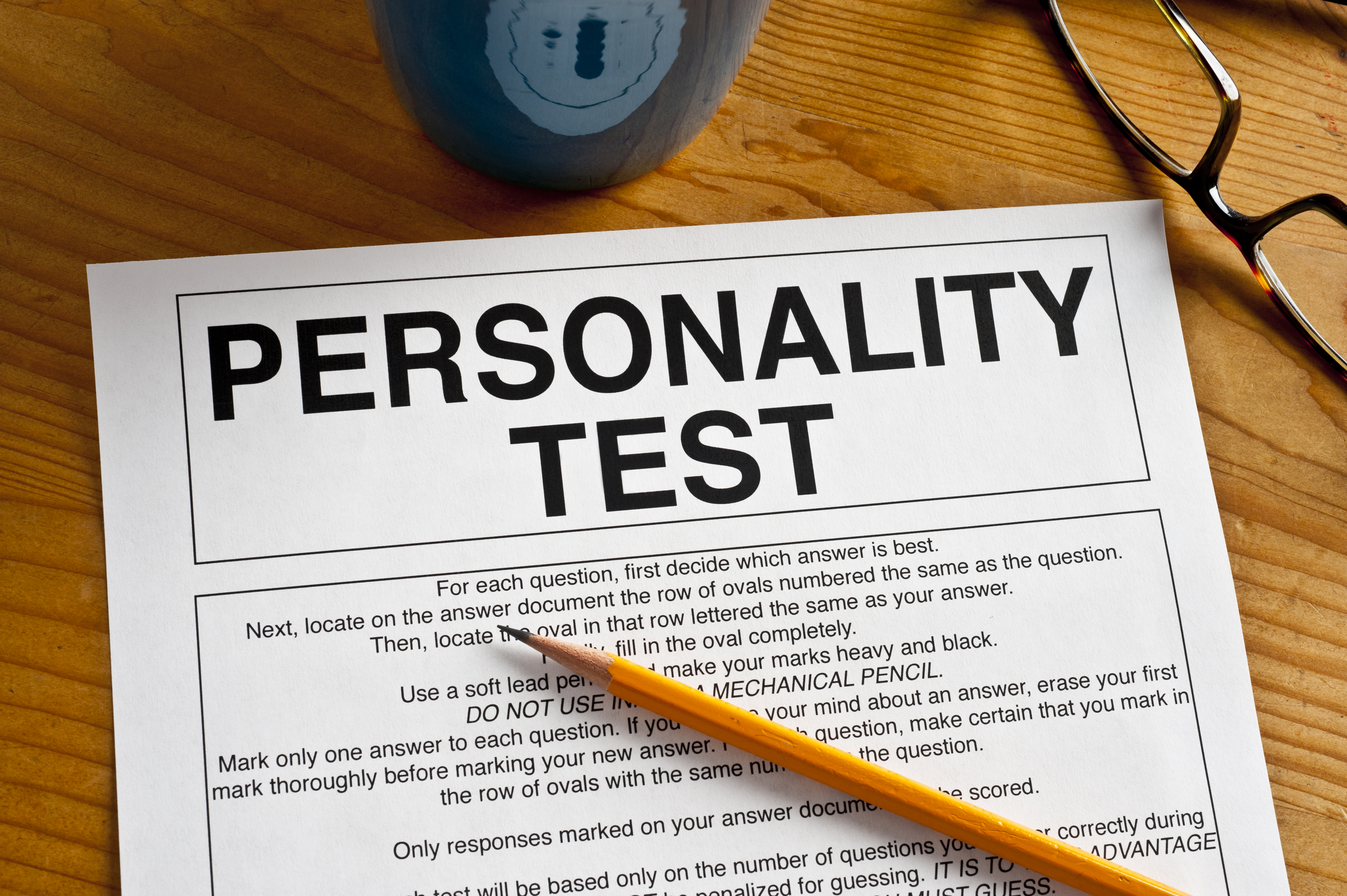
In today's high-stakes business environment, companies are putting more emphasis than ever on building company cultures that foster teamwork, innovation, and productivity.
To get there, they have to set the tone from the top and hire employees that will mesh well and uphold the company's values and vision.
However, it's not always easy to tell which candidates will make a good fit and which will upset the organization's delicate cultural balance. That's why human resources professionals and hiring managers employ all kinds of tactics to draw out the personality traits of each prospective hire.
The reality, though, is that today's job-seekers are coached to answer common personality questions with prepared responses designed to impress. That robs employers of the mission-critical ability to get to know the real person behind the résumé. The good news is there's a secret weapon that businesses can use to cut through the canned responses and figure out if a candidate is likely to be a good fit: personality testing.
Personality testing, for those unfamiliar with the concept, refers to scientifically-designed assessments that help build a personality profile of a given individual. For businesses, they can be remarkably useful tools to aid in the hiring process. They provide valuable data that can help further a variety of workforce goals but are used most often to aid with two very specific hiring challenges.
The first major challenge that personality testing helps companies overcome is the overarching need to hire the best available candidate for every open position. They can make all the difference in the world when making decisions between candidates with similar academic and professional backgrounds.
A personality test, for example, might help identify candidates with desirable leadership qualities that would enable them to grow within their position. Or it might reveal a candidate that shows a particular talent for detail-oriented tasks, which can be invaluable for certain types of work.
Personality tests can also help to screen candidates who may not have the real-world skills to back up their outstanding résumés. They provide a means of making sure a candidate can really do the things they claim to have done in previous positions – helping to sort fact from fiction and revealing embellishments in the story they're telling.
The second hiring challenge that personality testing helps companies overcome is in identifying candidates that will make a good fit into the existing company culture. This is a key concern for today's businesses, as maintaining the right culture can affect everything from the company's productivity to its ability to recruit and retain top talent.
Personality testing helps businesses find candidates with the right traits to fit into existing teams and workflows. It also helps them to identify candidates that could be the missing ingredient needed to turn existing teams into company all-stars.
Even though personality testing isn't a new phenomenon, its use in the hiring process is a somewhat recent development. Large corporations have led the way in adopting the practice, and it's been reported that 80% of Fortune 100 companies now do so.
The rapid rise in the use of personality testing in hiring processes has driven the development of a variety of methodologies that businesses of all sizes can choose from, depending on their needs. Here's an overview of four of the most popular options, and what they're best used for.
As one of the oldest and most respected personality tests available, the Myers-Briggs Type Indicator (MBTI) is the go-to method used by the vast majority of businesses. As a hiring tool, the MBTI test can place a candidate within 16 distinct personality categories that reflect their specific preferences.
It's important to recognize that the MBTI isn't a tool that can predict what a candidate is capable of, but rather provides a reflection of the kind of work or environment they'd be the happiest working in. In that way, it is a great tool for employers to use to determine how a potential candidate might fit within an existing team dynamic or culture. It may also be useful in helping to support new hires in the most effective manner as they acclimate to their new work environment.
Like the MBTI, the Riso-Hudson Enneagram Type Indicator (RHETI) system also divides subjects into categories (nine of them, in this case), broadly split into three major groupings, called centers. The groupings separate subjects based on the dominant emotional theme of their personality.
As a hiring tool, the RHETI system helps employers to gain insight into the emotional outlook of candidates. That can help businesses figure out a candidate's strengths, as well as how well they'll handle certain kinds of situations. It's a great way to find a candidate who's a “people person” or someone who can be a uniting force within a team. It can also be a useful measure of how hard a new hire might strive toward self-development, and provide useful guidance as to how best to manage them to help them do their best work.
Unlike the previous options, the DiSC assessment is less about pinpointing the specific personality traits of a candidate, but instead provides greater insight into their patterns of behavior and related tendencies. That makes it more of a "people matching" tool – one that might let a business know if a given candidate is likely to mesh well with a superior or a set of coworkers.
It's also a go-to testing method for a variety of businesses because it's one of the only available personality testing tools that explicitly focuses on normal behaviors. It doesn't screen for anything within the realm of abnormal psychology, which also means it is the least likely to run afoul of anti-discrimination laws that apply to the hiring process.
Although there hasn't yet been a case where a business was found to be in intentional violation of such laws by using personality testing, a few businesses have settled cases related to unintended consequences arising from their use.
So far, the personality tests covered here have been ones that aim to be catch-all options. In other words, they're looking to capture a rich picture of the candidate's personality traits, behavior patterns, and specific ways of handling situations. The Caliper Profile, by contrast, aims to match specific candidate traits to validated job description success models.
A Caliper Profile provides businesses with an easy-to-understand score that highlights a given candidate's strengths and weaknesses with respect to the role they're trying to take on. It also provides interviewers with specific questions to pose to the candidate, to help shed light on areas of deficiency the test may have uncovered. The same information is also quite useful in employee development after the initial hire is made because it provides managers with a roadmap to follow as they attempt to guide the employee to reach their maximum potential.
For businesses looking to integrate personality testing into their recruiting and hiring workflows, it's typically most efficient to do so within the framework of a pre-employment testing software suite. Such software is purpose-built to provide employers with a means of building comprehensive candidate profiles that help them identify top talent from among the countless applicants and résumés that come their way.
There are a variety of software packages and SaaS solutions available today that fit into almost any budget and satisfy almost any business need. Most, at a minimum, provide employers with tools to help them to evaluate the on-the-job skills of candidates. Some also include elements of personality testing drawn from the systems mentioned above, or allow for customized external tests to be added to the candidate testing process. In many cases, the platforms also connect with major applicant tracking systems to make the storage and flow of candidate data seamless to support efficient decision making for the business.
There are plenty of good reasons that today's businesses should consider using personality testing in their hiring processes. They can help differentiate between candidates with similar skills and experience, and give the business some insight on which person will make a better employee. They also make the goal of building and maintaining a company culture that facilitates efficiency, productivity, and employee happiness and retention much easier to accomplish.
Any of those benefits on their own should be enough to demonstrate the value of using personality testing in hiring. The fact that a business can get all of them by making such a simple addition to their hiring methods makes them a true no-brainer.
When you add in the fact that personality testing can be integrated into many of the hiring software solutions that businesses rely on already, it's a wonder that more companies haven't added them to their talent management arsenal. As awareness on the topic grows, however, it won't be long until personality testing becomes a standard feature of the hiring landscape in industries of all kinds.
In conjunction to personality tests and other related software, make sure you're using the best recruiting software to make the hiring process a breeze for your business.
Andrej is a digital marketing expert, editor at TechLoot, and a contributing writer for a variety of other technology-focused online publications. He has covered the intersection of marketing and technology for several years and is pursuing an ongoing mission to share his expertise with business leaders and marketing professionals everywhere.
There’s been a shift in thinking that many businesses have had to adapt when it comes to their...
 by Lauren Ventura
by Lauren Ventura
As a consultant, you want to stand out by providing every client with personalized advice at...
 by Stefan Debois
by Stefan Debois
Personalized marketing is all the rage for modern businesses.
 by Savan Kharod
by Savan Kharod
There’s been a shift in thinking that many businesses have had to adapt when it comes to their...
 by Lauren Ventura
by Lauren Ventura
As a consultant, you want to stand out by providing every client with personalized advice at...
 by Stefan Debois
by Stefan Debois


